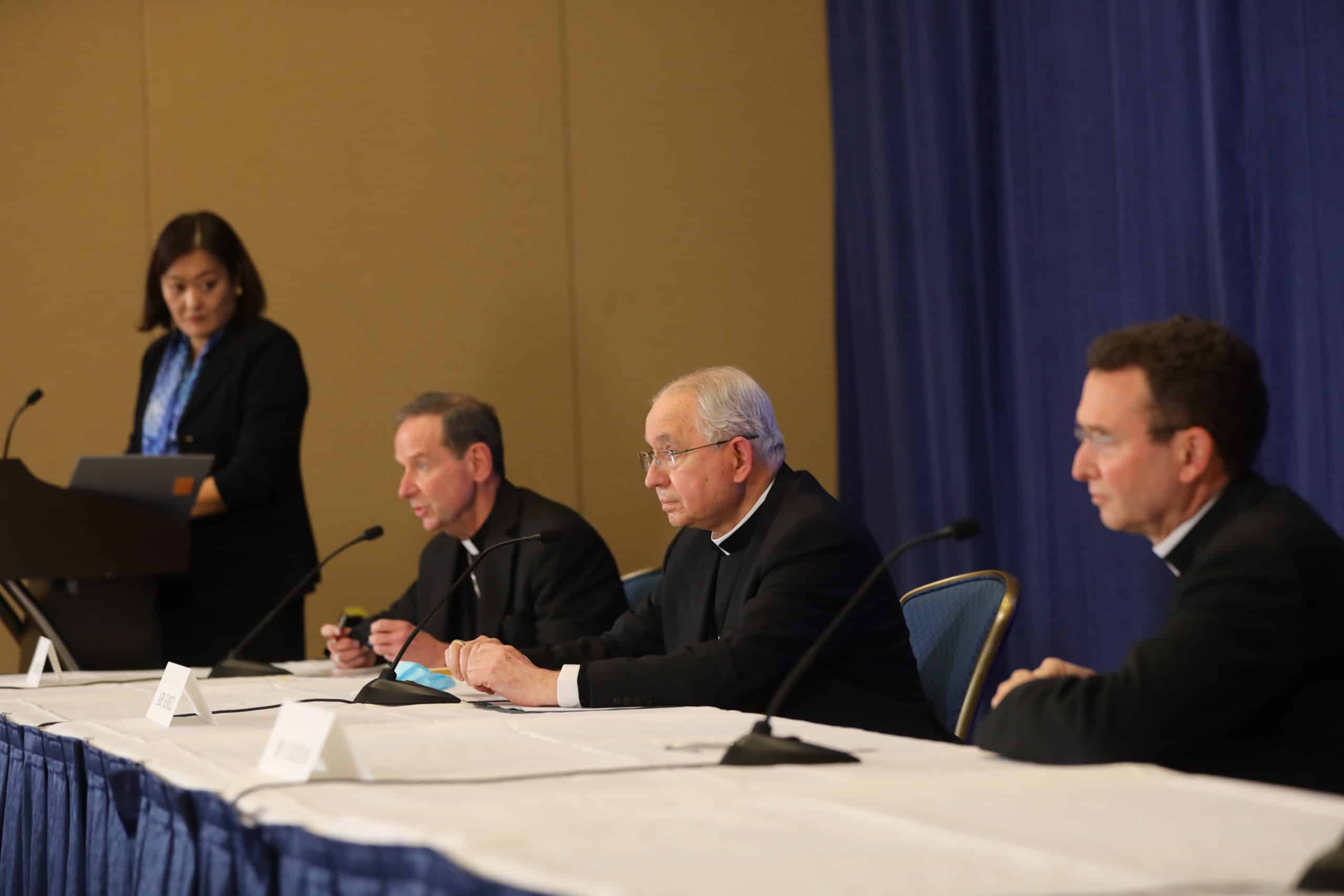 The United States government now mandates pregnancy. That’s what California Democratic Rep. Jackie Speier said on Women’s Equality Day (Aug. 26) at the University of California San Francisco Mission Bay.
The United States government now mandates pregnancy. That’s what California Democratic Rep. Jackie Speier said on Women’s Equality Day (Aug. 26) at the University of California San Francisco Mission Bay.
Her exact words were, “The fact that we have a government now on a federal level that is mandating pregnancy — government-mandated pregnancy — flies in the face of every personal freedom on which our country is founded.”
Jackie Speier, by the way, professes to be Catholic.
She was not the only Catholic congresswoman speaking at the event. U.S. House Speaker Nancy Pelosi herself said during the “reproductive health roundtable discussion” that the current state of affairs in the United States after the Supreme Court’s overturning of Roe v. Wade is “sinful.” In context: “The fact that this is such an assault on women of color and women — lower income families — is just sinful. It’s sinful.”
She went on to say, “It’s wrong that they would be able to say to women what they think women should be doing with their lives and their bodies. But it’s sinful, the injustice of it all.”
First thing: Take them at their word. They believe that the government is mandating pregnancy — at least after a woman is already pregnant. “Forced birth” is the way it’s been screamed at me on the streets of New York during prayer vigils outside Planned Parenthood. That strikes me as a more honest iteration of what the opposition to protections for the unborn believes.
There are no mandates for a woman to get pregnant. But once a woman or girl gets pregnant? What now?
Second: Call me crazy, but that’s where we can find meeting ground. This is where leaders can lead.
I’ll meet Nancy Pelosi on sinful. It is sinful for anyone — whatever your position on abortion — to not help a pregnant woman who is poor, who is scared, who is desperate. Ditto, that same mother after the child is born.
As you likely know, in some areas of the United States, more Black babies are killed in abortion than are born. In more ways than one, the cause of protecting unborn human life is the civil-rights cause of our lives.
Roland Warren is a Black man and heads Care Net, a pregnancy-care network. There’s this talking point I hear from people who are opposed to abortion: There are over 3,000 care centers in the United States. That’s true. I’ve said it. I’ve written it. But during a recent webinar co-sponsored by Christianity Today and the National Association of Evangelicals, Warren made clear they are not enough. We need more, and like Pelosi, I’m neither a theologian nor a confessor, but I do believe it is sinful to consider yourself pro-life and fail to do an examination of conscience at this historic moment about what more you can do. I do a lot of traveling and a lot of listening, and I fear we’re not. It seems to be the same people. We need more people to do the frontline work of love. Especially if you’ve been activated on pro-life politics. Especially if you’ve made your voice known. Especially if you’ve supported institutions that help pregnant women and mothers financially. Think bigger. Think creatively. And make sure you’re relating to people, whatever their position on abortion, with that love we need to be, as leaven on a contentious issue.
I do believe Nancy Pelosi’s bishop did the right thing when he made public his concerns about Pelosi’s abortion position — increasingly radical. I suspect it is priests blessing her pro-abortion position over the years in private that has her the moral muddled mess she is. But let’s work with her. I don’t know if she’s game, but it’s worth a try — with her and with the local Nancy Pelosi in your city or state government and everywhere else. It’s sinful to leave a desperate woman alone. And it’s sinful to make her think ending the life of her child is her only choice. It’s not. Let’s make sure no woman believes the lies of the culture of death.
The Pelosi and Speier remarks were made at a place that at least nominally gives tribute to St. Francis and later Franciscan missionaries. Invoke his intercessions for miracles. Even in politics.
Kathryn Jean Lopez is a senior fellow at the National Review Institute and editor-at-large of National Review.







